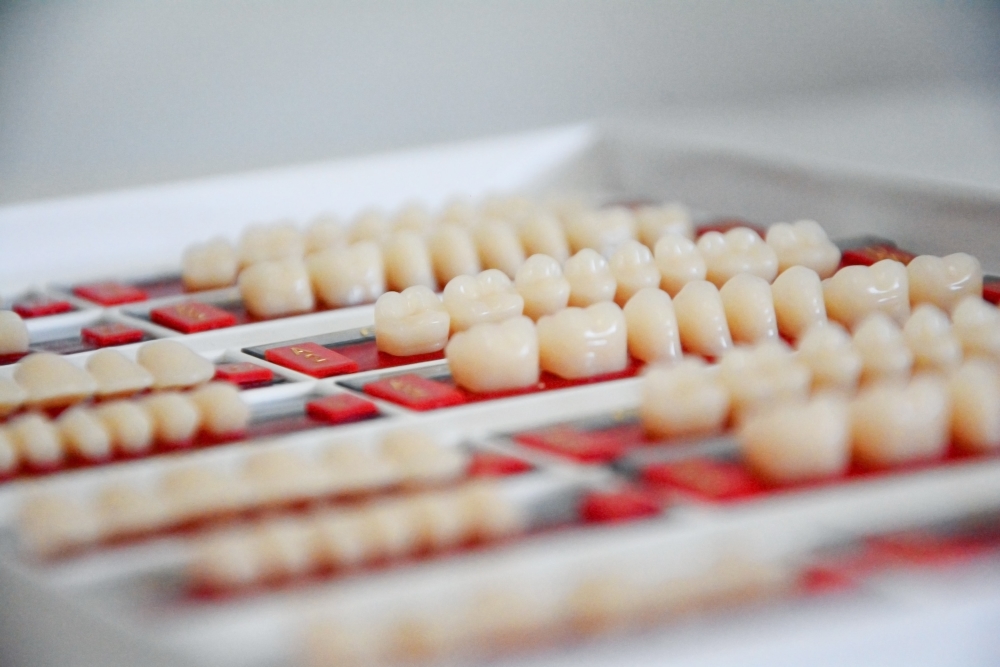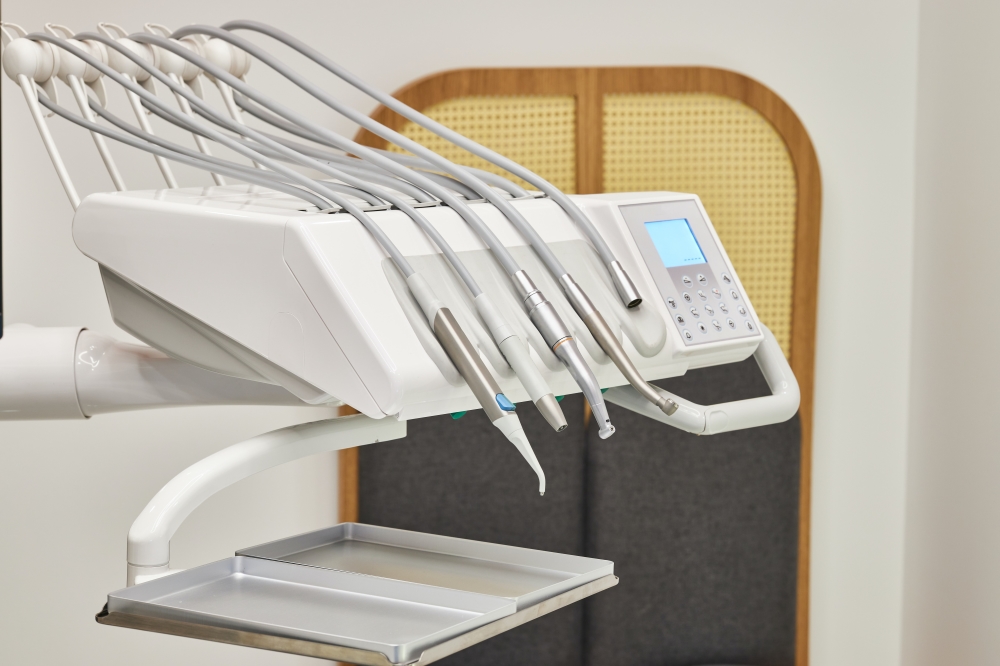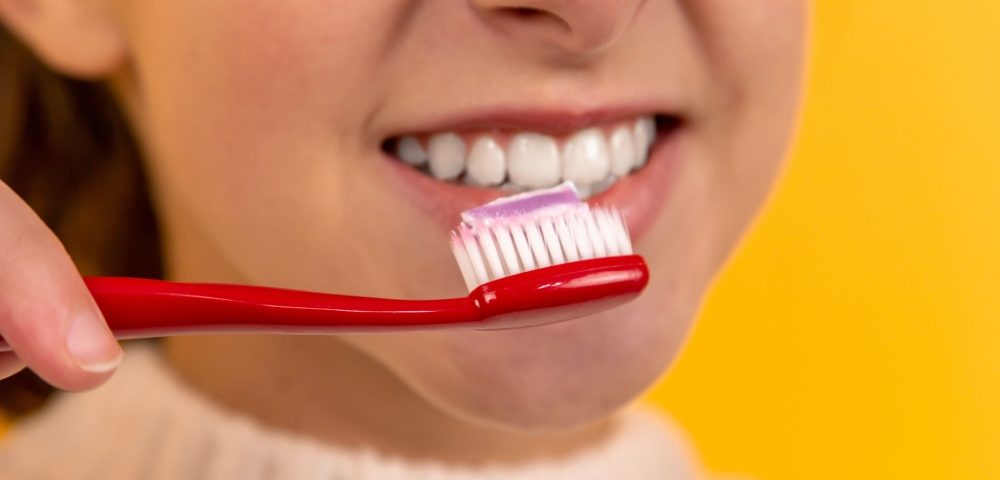
Am I a Good Candidate for Veneers?
July 10, 2021
What Happens During the Teeth Cleaning Process? Let us Break it Down
August 25, 2021When it comes to dental problems, how to solve tooth sensitivity is a common one. To correctly fix the problem, you need to know the cause. Therefore, you should have an evaluation from your dentist to find out what you can do to make your teeth less painful when exposed to heat, cold, and sweets. Here is our guide from Langley Dental Care to solving the problem of sensitivity in one or more teeth.
What Is Tooth Sensitivity?
Tooth sensitivity is a sharp pain typically felt in one or more teeth. Common sensitivity triggers can include temperature extremes, brushing, flossing, sweets, cold air, acids, and mouthwash containing alcohol. For example, if you drink coffee or eat ice cream, your teeth may hurt when they touch the food or drink. Or you may feel pain in your teeth when breathing through your mouth on a cold day.
Whether you’ve dealt with sensitivity for years or just developed it, you need to talk to your dentist about it. There could be a simple reason behind it that can readily be treated to let you go back to eating and drinking the things you most enjoy.
Why You Need to See a Dentist for Tooth Sensitivity
Because dental hypersensitivity, also known as tooth sensitivity, has several causes, including dental decay and infections, you should see your dentist as soon as you notice a problem. By getting an exam, the dentist can find out why you have sensitivity and how to treat it.
One example of sensitivity is decay. Your dentist can readily treat a cavity with a dental filling to seal the hole in the tooth and protect the root from infection.
Without treatment, the decay and sensitivity can worsen. In fact, one symptom of needing root canal treatment for some people is increased sensitivity in a single tooth. In these cases, the pain may last for a minute or longer after removing the triggering food or drink.
Therefore, tooth sensitivity could indicate a problem that needs prompt care to prevent you from needing more intensive treatments and more sensitivity and pain.
What Are Causes of Sensitivity?
As noted, decay or infection inside the tooth can cause sensitivity. However, there are other potential causes. First, you may have lost a filling or crown. In some cases, a crack in a tooth that only a dentist can see with an x-ray causes sensitivity. These problems require restorative dental care to fix.
Another cause of sensitivity could be the gums. With gum recession, the root of the teeth becomes exposed. Because these parts of the teeth are not protected by the gums, they are exposed to sensitivity triggers, causing pain.
Lifestyle factors can also impact tooth sensitivity. For instance, if you regularly drink sodas or eat acidic foods, you increase the chances of experiencing sensitivity. The acid wears enamel away, making teeth sensitive. Plus, your teeth are at greater risk of staining and decay without their protective enamel in place. Stomach acid from acid reflux can have the same impact on tooth enamel as acidic foods and drinks.
How you care for your teeth may also lead to sensitivity. Brushing too hard or using a hard bristle brush can harm the enamel on your teeth. If you brush too soon after eating or drinking acidic foods, you could spread the acid around your mouth to the rest of your teeth and cause more damage. Certain toothpaste could also lead to sensitivity; toothpaste with a high level of grittiness like whitening and charcoal toothpaste can increase your chances of enamel and root wear, called abrasion.
Lastly, nighttime grinding, a condition called bruxism, can cause sensitivity by creating unseen cracks in teeth or putting extra pressure on the biting surfaces.
How to Solve Tooth Sensitivity
To solve tooth sensitivity, the dentist will determine the cause of the problem and its severity. For instance, the dentist may recommend over-the-counter sensitivity toothpaste for mild cases. However, if you have problems that require dental intervention, such as bruxism, decay, gum recession, or infections, you will get professional treatment, which will help your teeth feel better.
Dental Treatments for Tooth Sensitivity
Dental treatments for tooth sensitivity don’t dull your dental sensations. Instead, they correct the cause of the problem. When you have dental decay, sensitivity triggers can reach the nerve inside the tooth. By sealing the tooth with a filling, the dentist blocks this path for the pain to travel. When you need root canal treatment, removing the infected material from inside the tooth stops the pain at its source.
Gum recession may require gum graft surgery to augment your gum tissue. Topical medicines or fillings can also stop sensitivity at the exposed root. Talk to your dentist about this option or possible alternative treatments. You will receive specific information about your particular extent of recession and how it impacts your dental health.
For cases of bruxism, you may benefit from a nightguard to cushion your teeth and jaw at night. Wearing this device reduces the force on your teeth, which can help to ease sensitivity over time.
Home Treatments
In some cases of mild sensitivity, you may benefit from lifestyle changes. First, stop drinking and eating acidic foods. If you want to continue enjoying these, rinse out your mouth with water to remove acid from your teeth’ surfaces and wait 10 minutes before brushing.
If you have acid reflux or another condition to cause stomach acid to enter the mouth, talk to your primary care physician for treatment options. You may need medication to treat this condition.
Over-the-counter sensitivity toothpaste works for mild cases by stopping the pain and helping to strengthen tooth enamel. Don’t use these products without checking with your dentist first to see if you have a physical reason behind your sensitivity.
Reach Out for an Appointment with Langley Dental Care for How to Solve Tooth Sensitivity
Before trying home remedies, if you have tooth sensitivity, make an appointment with us at Langley Dental Care in Charlotte, NC. Our doctors can perform a thorough exam to find the cause of your sensitivity and help you to find the best way to treat it for lasting relief. Stop living with the pain and contact us today to start finding out how to solve tooth sensitivity in your mouth.



